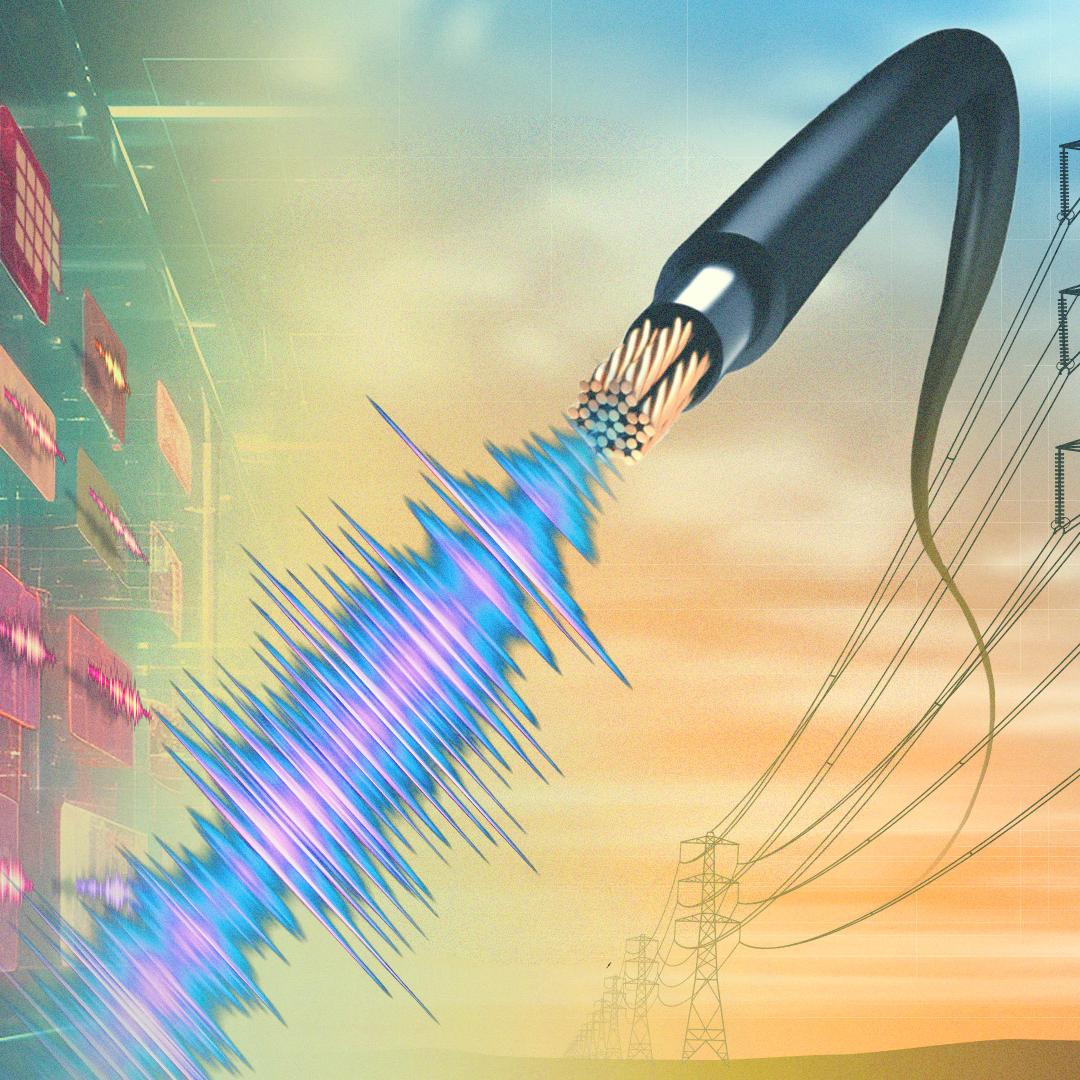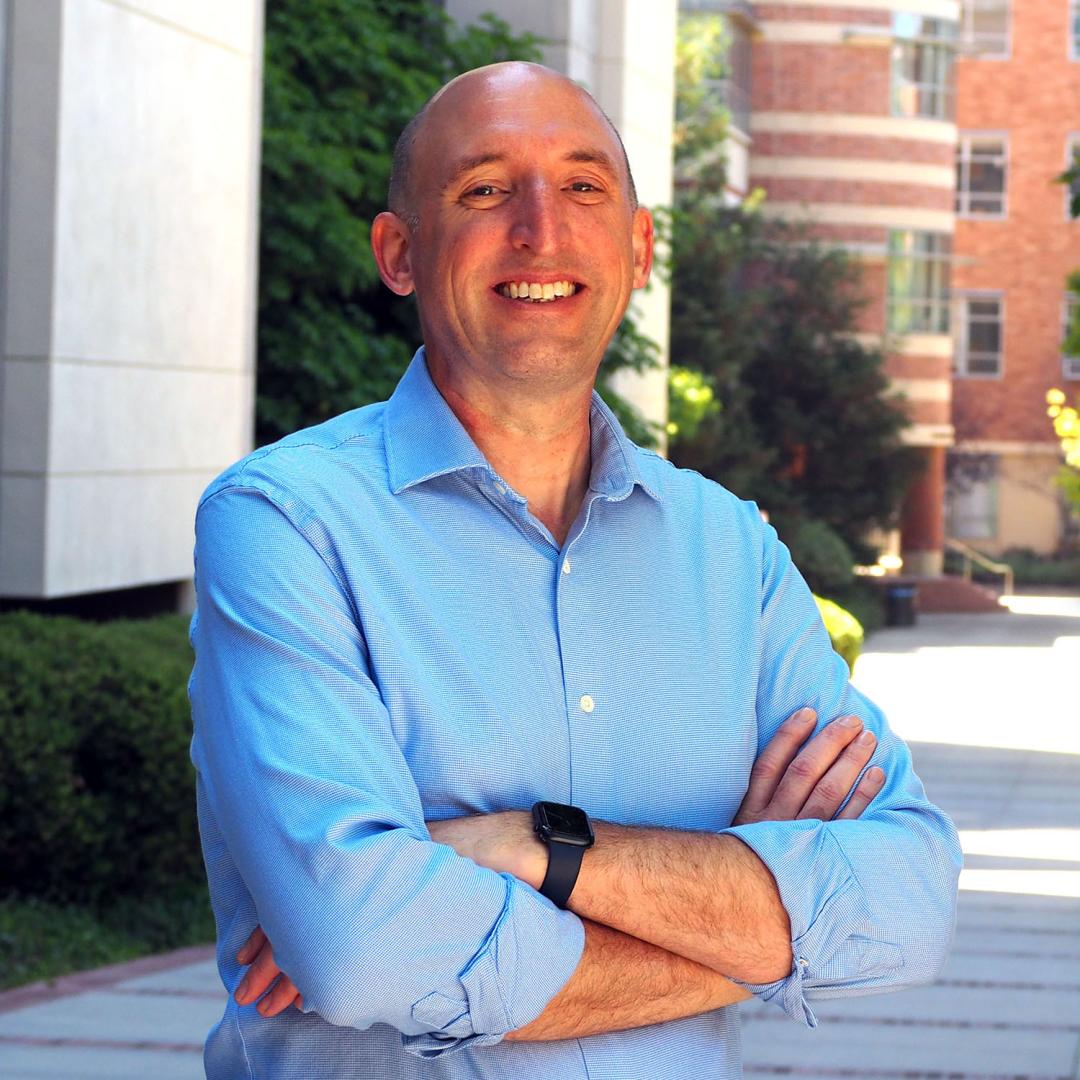
Filter News
Area of Research
News Topics
- (-) Decarbonization (46)
- (-) Molten Salt (1)
- (-) Quantum Computing (20)
- 3-D Printing/Advanced Manufacturing (39)
- Advanced Reactors (8)
- Artificial Intelligence (46)
- Big Data (24)
- Bioenergy (51)
- Biology (59)
- Biomedical (28)
- Biotechnology (11)
- Buildings (19)
- Chemical Sciences (24)
- Clean Water (14)
- Climate Change (50)
- Composites (6)
- Computer Science (83)
- Coronavirus (17)
- Critical Materials (2)
- Cybersecurity (14)
- Education (1)
- Emergency (2)
- Energy Storage (29)
- Environment (104)
- Exascale Computing (25)
- Fossil Energy (4)
- Frontier (24)
- Fusion (31)
- Grid (23)
- High-Performance Computing (44)
- Hydropower (5)
- Isotopes (27)
- ITER (2)
- Machine Learning (22)
- Materials (43)
- Materials Science (45)
- Mathematics (6)
- Mercury (7)
- Microelectronics (2)
- Microscopy (20)
- Nanotechnology (16)
- National Security (36)
- Net Zero (8)
- Neutron Science (47)
- Nuclear Energy (55)
- Partnerships (16)
- Physics (28)
- Polymers (8)
- Quantum Science (30)
- Renewable Energy (1)
- Security (11)
- Simulation (31)
- Software (1)
- Space Exploration (12)
- Statistics (1)
- Summit (30)
- Sustainable Energy (44)
- Transformational Challenge Reactor (3)
- Transportation (27)
Media Contacts
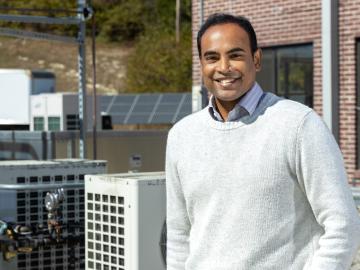
Cheekatamarla is a researcher in the Multifunctional Equipment Integration group with previous experience in product deployment. He is researching alternative energy sources such as hydrogen for cookstoves and his research supports the decarbonization of building technologies.

Researchers simulated a key quantum state at one of the largest scales reported, with support from the Quantum Computing User Program, or QCUP, at ORNL.
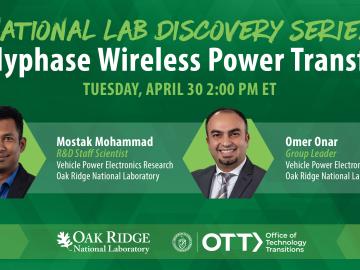
ORNL’s Omer Onar and Mostak Mohammad will present on ORNL's wireless charging technology in DOE’s Office of Technology Transitions National Lab Discovery Series Tuesday, April 30.
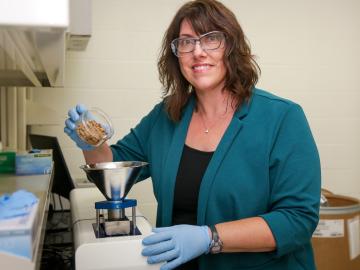
ORNL’s Erin Webb is co-leading a new Circular Bioeconomy Systems Convergent Research Initiative focused on advancing production and use of renewable carbon from Tennessee to meet societal needs.
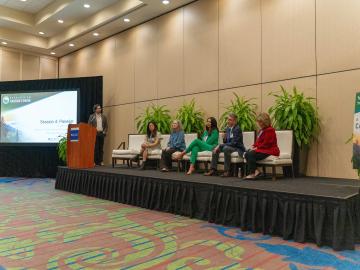
ORNL hosted the second annual Appalachian Carbon Forum in Lexington March 7-8, 2024, where ORNL and University of Kentucky’s Center for Applied Energy Research scientists led discussions with representatives from
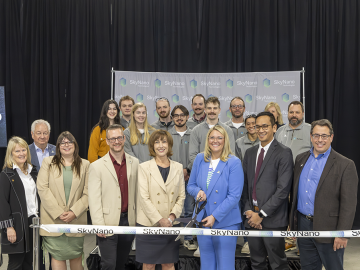
SkyNano, an Innovation Crossroads alumnus, held a ribbon-cutting for their new facility. SkyNano exemplifies using DOE resources to build a successful clean energy company, making valuable carbon nanotubes from waste CO2.
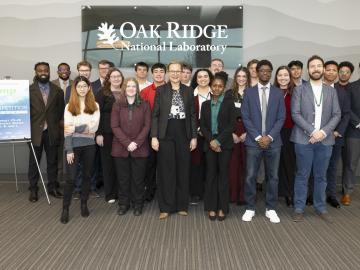
Students with a focus on building science will spend 10 weeks this summer interning at ORNL, the National Renewable Energy Laboratory and Pacific Northwest Laboratory as winners of the DOE’s Office of Energy Efficiency and Renewable Energy’s Building Technologies Office sixth annual JUMP into STEM finals competition.
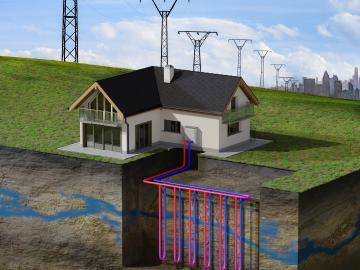
A modeling analysis led by ORNL gives the first detailed look at how geothermal energy can relieve the electric power system and reduce carbon emissions if widely implemented across the United States within the next few decades.
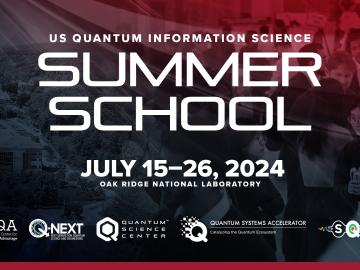
From July 15 to 26, 2024, the Department of Energy’s Oak Ridge National Laboratory will host the second U.S. Quantum Information Science, or QIS, Summer School.
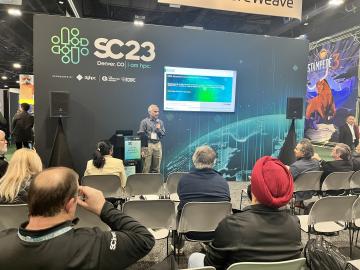
ORNL’s successes in QIS and its forward-looking strategy were recently recognized in the form of three funding awards that will help ensure the laboratory remains a leader in advancing quantum computers and networks.


